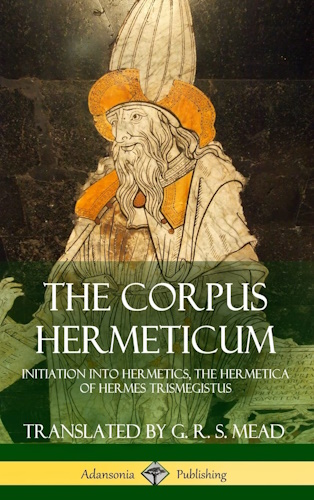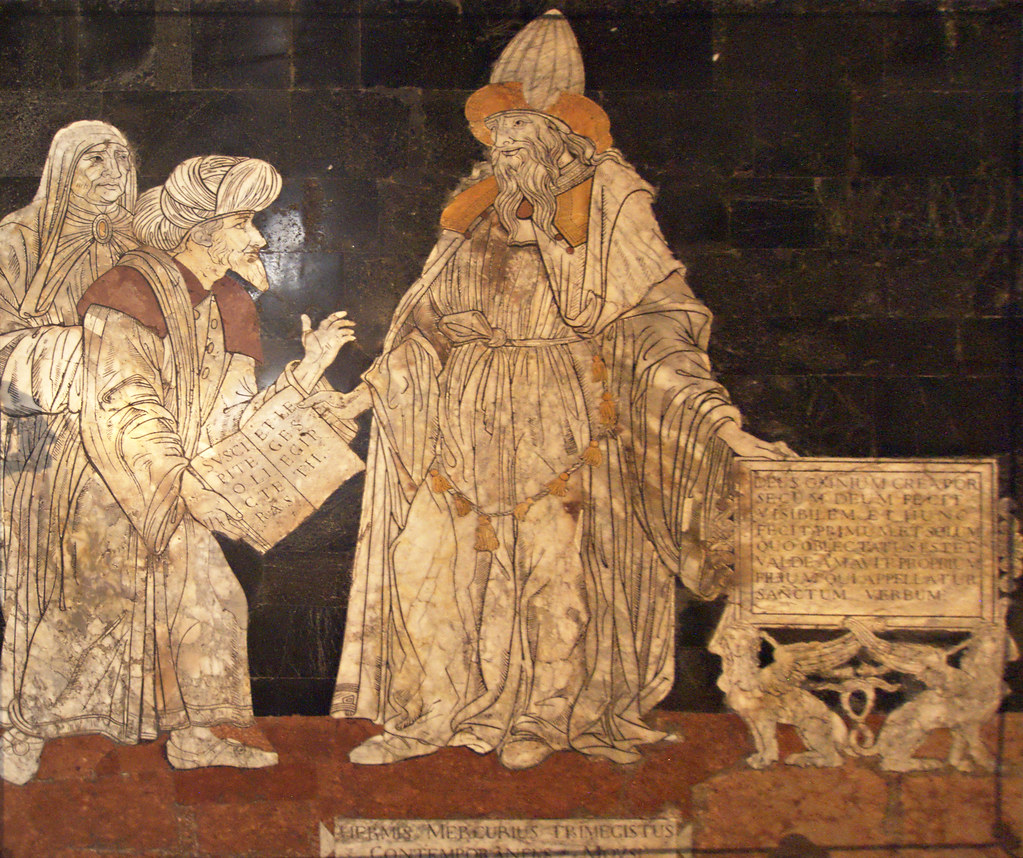
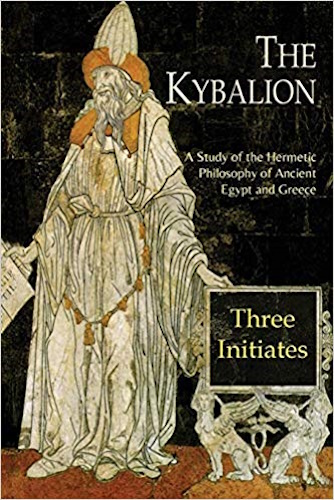

![Thrice-Greatest Hermes; Studies in Hellenistic Theosophy and Gnosis [Three Volumes in One] Thrice-Greatest Hermes; Studies in Hellenistic Theosophy and Gnosis [Three Volumes in One]](http://realityroars.com/images/affiliate-creative/thrice-greatest-hermes--studies-in-hellenistic-theosophy-and-gnosis.jpg)

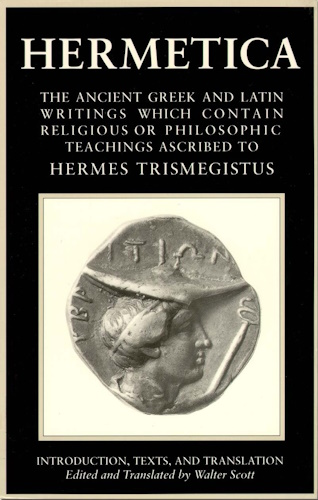



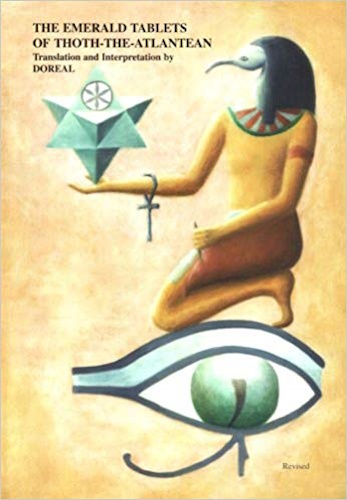

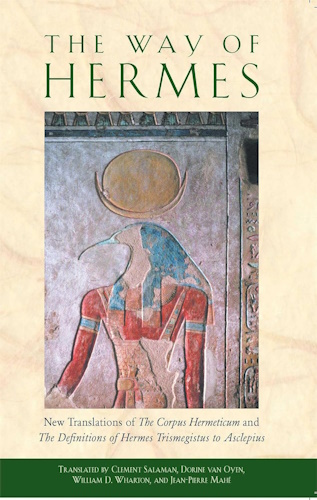

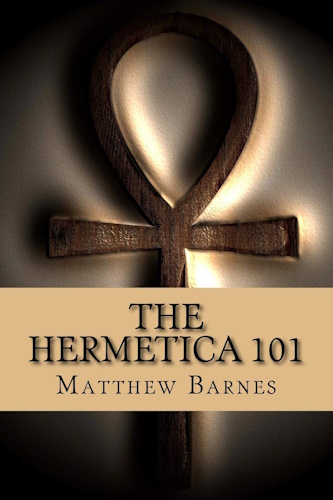

![]()
![]()
XVII. The Encomium of Kings
(About the Soul's being Hindered by the Passion of the Body)
1. [Now] in the case of those professing the harmonious art of muse-like melody—if, when the piece is played, the discord of the instruments doth hinder their intent, its rendering becomes ridiculous.
For when his instruments are quite too weak for what's required of them, the music-artist needs must be laughed at by the audience.
For He, with all good will, gives of His art unweariedly; they blame the [artist's] weakness.
He then who is the Natural Musician-God, not only in His making of the harmony of His [celestial] songs, but also in His sending forth the rhythm of the melody of His own song[s] right down unto the separate instruments, is, as God, never wearied.
For that with God there is no growing weary.
2. So, then, if ever a musician desires to enter into the highest contest of his art he can—when now the trumpeters have rendered the same phrase of the [composer's] skill, and afterwards the flautists played the sweet notes of the melody upon their instruments, and they complete the music of the piece with pipe and plectrum—[if any thing goes wrong,] one does not lay the blame upon the inspiration of the music-maker.
Nay, [by no means,]—to him one renders the respect that is his due; one blames the falseness of the instrument, in that it has become a hindrance to those who are most excellent—embarrassing the maker of the music in [the execution of] his melody, and robbing those who listen of the sweetness of the song.
3. In like way also, in our case, let no one of our audience for the weakness that inheres in body, blame impiously our Race.
Nay, let him know God is Unwearied Spirit—for ever in the self-same way possessed of His own science, unceasing in His joyous gifts, the self-same benefits bestowing everywhere.
4. And if the Pheidias—the Demiurge—is not responded to, by lack of matter to perfect His skilfulness, although for His own part the Artist has done all he can, let us not lay the blame on Him.
But let us, [rather,] blame the weakness of the string, in that, because it is too slack or is too tight, it mars the rhythm of the harmony.
5. So when it is that the mischance occurs by reason of the instrument, no one doth blame the Artist.
Nay, [more;] the worse the instrument doth chance to be, the more the Artist gains in reputation by the frequency with which his hand doth strike the proper note, and more the love the listeners pour upon that Music-maker, without the slightest thought of blaming him.
So will we too, most noble [Sirs], set our own lyre in tune again, within, with the Musician!
6. Nay, I have seen one of the artist-folk—although he had no power of playing on the lyre—when once he had been trained for the right noble theme, make frequent use of his own self as instrument, and tune the service of his string by means of mysteries, so that the listeners were amazed at how he turned necessitude into magnificence.
Of course you know the story of the harper who won the favour of the God who is the president of music-work.
[One day,] when he was playing for a prize, and when the breaking of a string became a hindrance to him in the contest, the favour of the Better One supplied him with another string, and placed within his grasp the boon of fame.
A grasshopper was made to settle on his lyre, through the foreknowledge of the Better One, and [so] fill in the melody in substitution of the [broken] string.
And so by mending of his string the harper's grief was stayed, and fame of victory was won.
7. And this I feel is my own case, most noble [Sirs]!
For but just now I seemed to make confession of my want of strength, and play the weakling for a little while; but now, by virtue of the strength of [that] Superior One, as though my song about the King had been perfected [by Him, I seem] to wake my muse.
For, you must know, the end of [this] our duty will be the glorious fame of Kings, and the good-will of our discourse (logos) [will occupy itself] about the triumphs which they win.
Come then, let us make haste! For that the singer willeth it, and hath attuned his lyre for this; nay more, more sweetly will he play, more fitly will he sing, as he has for his song the greater subjects of his theme.
8. Since, then, he has the [stringing] of his lyre tuned specially to Kings, and has the key of laudatory songs, and as his goal the Royal praises, let him first raise himself unto the highest King—the God of wholes.
Beginning, [then,] his song from the above, he, [thus,] in second place, descends to those after His likeness who hold the sceptre's power; since Kings themselves, indeed, prefer the [topics] of the song should step by step descend from the above, and where they have their [gifts of] victory presided o'er for them, thence should their hopes be led in orderly succession.
9. Let, then, the singer start with God, the greatest King of wholes, who is for ever free from death, both everlasting and possessed of [all] the might of everlastingness, the Glorious Victor, the very first, from whom all victories descend to those who in succession do succeed to victory.
10. Our sermon (logos) then, doth hasten to descend to [Kingly] praises and to the Presidents of common weal and peace, the Kings—whose lordship in most ancient times was placed upon the highest pinnacle by God Supreme; for whom the prizes have already been prepared even before their prowess in the war; of whom the trophies have been raised even before the shock of conflict.
For whom it is appointed not only to be Kings but also to be best.
At whom, before they even stir, the foreign land doth quake.
(About the Blessing of the Better [One] and Praising of the King)
11. But now our theme (logos) doth hasten on to blend its end with its beginnings—with blessing of the Better [One]; and then to make a final end of its discourse (logos) on those divinest Kings who give us the [great] prize of peace.
For just as we began [by treating] of the Better [One] and of the Power Above, so let us make the end bend round again unto the same—the Better [One].
Just as the Sun, the nurse of all the things that grow, on his first rising, gathers unto himself the first-fruits of their yield with his most mighty hands, using his rays as though it were for plucking off their fruits—yea, [for] his rays are [truly] hands for him who plucketh first the most ambrosial [essences] of plants—so, too, should we, beginning from the Better [One], and [thus] recipient of His wisdom's stream, and turning it upon the garden of our souls above the heavens,—we should [direct and] train these [streams] of blessing back again unto their source, [blessing] whose entire power of germination [in us] He hath Himself poured into us.
12. 'Tis fit ten thousand tongues and voices should be used to send His blessings back again unto the all-pure God, who is the Father of our souls; and though we cannot utter what is fit—for we are [far] unequal to the task—[yet will we say what best we can].
For Babes just born have not the strength to sing their Father's glory as it should be sung; but they give proper thanks for them, according to their strength, and meet with pardon for their feebleness.
Nay, it is rather that God's glory doth consist in this [one] very thing—that He is greater than His children; and that the prelude and the source, the middle and the end, of blessings, is to confess the Father to be infinitely puissant and never knowing what a limit means.
13. So is it, too, in the King's case.
For that we men, as though we were the children of the King, feel it our natural duty to give praise to him. Still must we ask for pardon [for our insufficiency], e'en though 'tis granted by our Sire before we [even] ask.
And as it cannot be the Sire will turn from Babes new-born because they are so weak, but rather will rejoice when they begin to recognise [his love]—so also will the Gnosis of the all [rejoice], which doth distribute life to all, and power of giving blessing back to God, which He hath given [us].
14. For God, being Good, and having in Himself eternally the limit of His own eternal fitness, and being deathless, and containing in Himself that lot of that inheritance that cannot come unto an end, and [thus] for ever ever-flowing from out that energy of His, He doth send tidings to this world down here [to urge us] to the rendering of praise that brings us home again.
With Him, therefore, is there no difference with one another; there is no partiality with Him.
But they are one in Thought. One is the Prescience of all. They have one Mind—their Father.
One is the Sense that's active through them—their passion for each other. 'Tis Love Himself who worketh the one harmony of all.
15. Thus, therefore, let us sing the praise of God.
Nay, rather, let us [first] descend to those who have received their sceptres from Him.
For that we ought to make beginning with our Kings, and so by practising ourselves on them, accustom us to songs of praise, and train ourselves in pious service to the Better [One].
[We ought] to make the very first beginnings of our exercise of praise begin from him, and through him exercise the practice [of our praise], that so there may be in us both the exercising of our piety towards God, and of our praise to Kings.
16. For that we ought to make return to them, in that they have extended the prosperity of such great peace to us.
It is the virtue of the King, nay, 'tis his name alone, that doth establish peace.
He has his name of King because he levelleth the summits of dissension with his smooth tread, and is the lord of reason (logos) that [makes] for peace.
And in as much, in sooth, as he hath made himself the natural protector of the kingdom which is not his native land, his very name [is made] the sign of peace.
For that, indeed, you know, the appellation of the King has frequently at once restrained the foe.
Nay, more, the very statues of the King are peaceful harbours for those most tempest-tossed.
The likeness of the King alone has to appear to win the victory, and to assure to all the citizens freedom from hurt and fear.


![Thrice-Greatest Hermes; Studies in Hellenistic Theosophy and Gnosis [Three Volumes in One] Thrice-Greatest Hermes; Studies in Hellenistic Theosophy and Gnosis [Three Volumes in One]](http://realityroars.com/images/affiliate-creative/thrice-greatest-hermes--studies-in-hellenistic-theosophy-and-gnosis.jpg)











-
Urantia Book, 44:0.11 - The Celestial Artisans
Never in your long ascendancy will you lose the power to recognize your associates of former existences. Always, as you ascend inward in the scale of life, will you retain the ability to recognize and fraternize with the fellow beings of your previous and lower levels of experience. Each new translation or resurrection will add one more group of spirit beings to your vision range without in the least depriving you of the ability to recognize your friends and fellows of former estates.
-
Princess Bride 1987 Wallace Shawn (Vizzini) and Mandy Patinkin (Inigo Montoya)
Vizzini: HE DIDN'T FALL? INCONCEIVABLE.
Inigo Montoya: You keep using that word. I do not think it means what you think it means. -
Urantia Book, 117:4.14 - The Finite God
And here is mystery: The more closely man approaches God through love, the greater the reality -- actuality -- of that man. The more man withdraws from God, the more nearly he approaches nonreality -- cessation of existence. When man consecrates his will to the doing of the Father's will, when man gives God all that he has, then does God make that man more than he is.
-
Urantia Book, 167:7.4 - The Talk About Angels
"And do you not remember that I said to you once before that, if you had your spiritual eyes anointed, you would then see the heavens opened and behold the angels of God ascending and descending? It is by the ministry of the angels that one world may be kept in touch with other worlds, for have I not repeatedly told you that I have other sheep not of this fold?"
-
Urantia Book, Foreword - 0:12.12 - The Trinities
But we know that there dwells within the human mind a fragment of God, and that there sojourns with the human soul the Spirit of Truth; and we further know that these spirit forces conspire to enable material man to grasp the reality of spiritual values and to comprehend the philosophy of universe meanings. But even more certainly we know that these spirits of the Divine Presence are able to assist man in the spiritual appropriation of all truth contributory to the enhancement of the ever-progressing reality of personal religious experience—God-consciousness.
-
Urantia Book, 1:4.3 - The Mystery Of God
When you are through down here, when your course has been run in temporary form on earth, when your trial trip in the flesh is finished, when the dust that composes the mortal tabernacle "returns to the earth whence it came"; then, it is revealed, the indwelling "Spirit shall return to God who gave it." There sojourns within each moral being of this planet a fragment of God, a part and parcel of divinity. It is not yet yours by right of possession, but it is designedly intended to be one with you if you survive the mortal existence.
-
Urantia Book, 1:4.1 - The Mystery Of God
And the greatest of all the unfathomable mysteries of God is the phenomenon of the divine indwelling of mortal minds. The manner in which the Universal Father sojourns with the creatures of time is the most profound of all universe mysteries; the divine presence in the mind of man is the mystery of mysteries.
-
Urantia Book, 1:4.6 - The Mystery Of God
To every spirit being and to every mortal creature in every sphere and on every world of the universe of universes, the Universal Father reveals all of his gracious and divine self that can be discerned or comprehended by such spirit beings and by such mortal creatures. God is no respecter of persons, either spiritual or material. The divine presence which any child of the universe enjoys at any given moment is limited only by the capacity of such a creature to receive and to discern the spirit actualities of the supermaterial world.
-
Urantia Book, 11:0.1 - The Eternal Isle Of Paradise
Paradise is the eternal center of the universe of universes and the abiding place of the Universal Father, the Eternal Son, the Infinite Spirit, and their divine co-ordinates and associates. This central Isle is the most gigantic organized body of cosmic reality in all the master universe. Paradise is a material sphere as well as a spiritual abode. All of the intelligent creation of the Universal Father is domiciled on material abodes; hence must the absolute controlling center also be material, literal. And again it should be reiterated that spirit things and spiritual beings are real.
-
Urantia Book, 50:6.4 - Planetary Culture
Culture presupposes quality of mind; culture cannot be enhanced unless mind is elevated. Superior intellect will seek a noble culture and find some way to attain such a goal. Inferior minds will spurn the highest culture even when presented to them ready-made.
-
Urantia Book, 54:1.6 - True And False Liberty
True liberty is the associate of genuine self-respect; false liberty is the consort of self-admiration. True liberty is the fruit of self-control; false liberty, the assumption of self-assertion. Self-control leads to altruistic service; self-admiration tends towards the exploitation of others for the selfish aggrandizement of such a mistaken individual as is willing to sacrifice righteous attainment for the sake of possessing unjust power over his fellow beings.
-
Urantia Book, 54:1.9 - True And False Liberty
How dare the self-willed creature encroach upon the rights of his fellows in the name of personal liberty when the Supreme Rulers of the universe stand back in merciful respect for these prerogatives of will and potentials of personality! No being, in the exercise of his supposed personal liberty, has a right to deprive any other being of those privileges of existence conferred by the Creators and duly respected by all their loyal associates, subordinates, and subjects.
-
Urantia Book, 54:1.8 - True And False Liberty
There is no error greater than that species of self-deception which leads intelligent beings to crave the exercise of power over other beings for the purpose of depriving these persons of their natural liberties. The golden rule of human fairness cries out against all such fraud, unfairness, selfishness, and unrighteousness.

